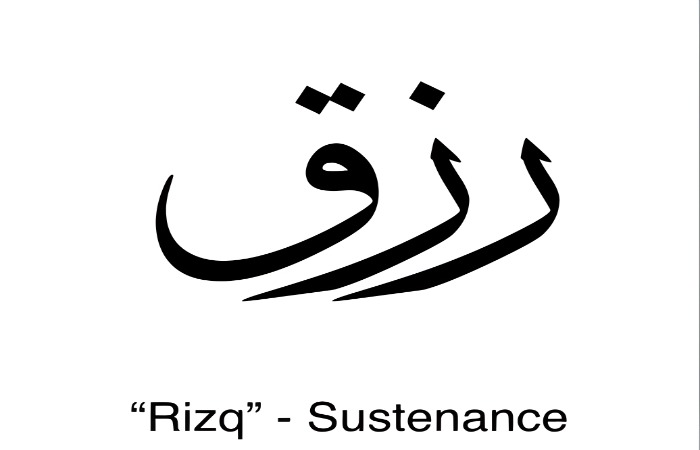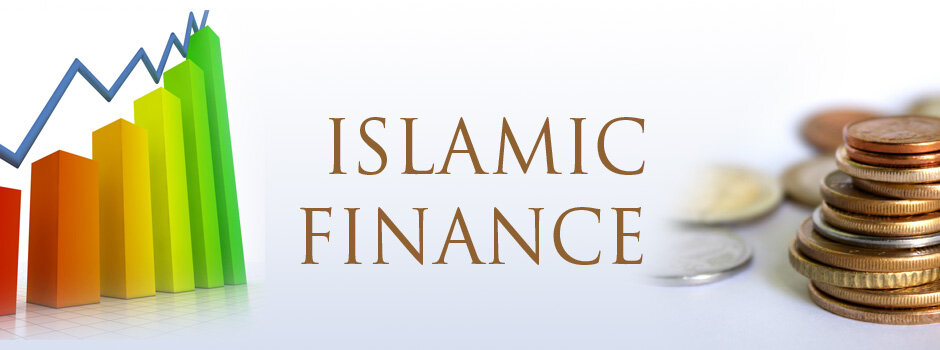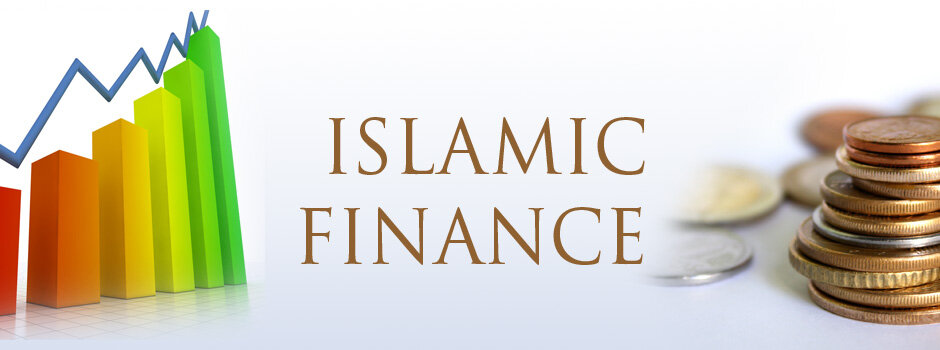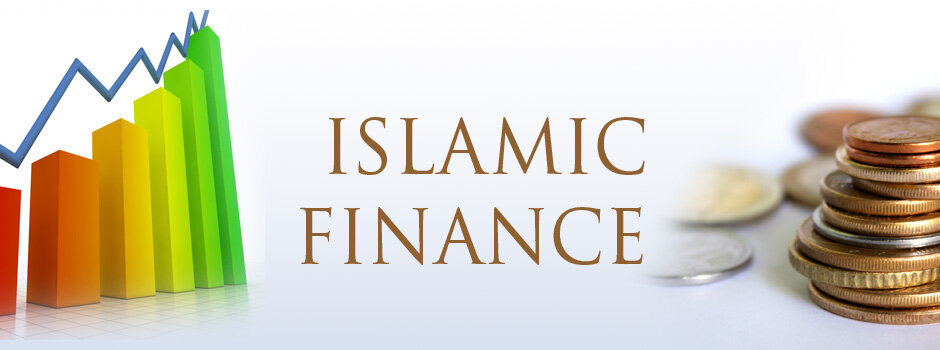"Rizq" is one of the important Islamic concepts for understanding personal finance from an Islamic perspective. "Rizq" in Arabic does not have a direct translation, but it is a comprehensive term that refers to the concept of sustenance (or provision) that Allah provides to His creation. It encompasses not only material wealth or possessions but also a broader understanding of sustenance, such as food, water, shelter, clothing, and includes intangible blessings like knowledge, skills, opportunities, health, etc. In other words, rizq refers to everything necessary for a person’s well-being and fulfillment in life, granted to individuals by Allah to meet their physical, emotional, and spiritual needs.
Islam teaches that sustenance (rizq) of every individual is predetermined by Allah and distributed according to His divine wisdom throughout individuals’ life. While this does not absolve individuals from their responsibility to work hard, strive for excellence, and make efforts to earn a living, Islam teaches that it is only Allah who grants their sustenance (rizq). This understanding cultivates a sense of gratitude, reliance on Allah, and helps find contentment with whatever sustenance (rizq) they receive and regardless of material circumstances.
The Quran highlights the significance of sustenance (rizq) in several verses, emphasizing that all living beings are dependent upon Allah for their sustenance, and that He is the ultimate provider. For example, in the Quran Allah says:
“And the earth - We have spread it and cast therein firmly set mountains and caused to grow therein [something] of every well-balanced thing.” - (15:19).
“And We have made for you therein means of living and [for] those for whom you are not providers.” - (15:20).
The Prophet Muhammad, peace be upon him, taught the significance of trusting Allah in a matter of sustenance (rizq). Reported from Umar ibn al-Khattab, may Allah be pleased with him: “the Prophet, may peace be upon him, said: “I heard the Messenger of Allah (ﷺ) say: ‘If you were to rely upon Allah with the reliance He is due, you would be given provision like the birds: They go out hungry in the morning and come back with full bellies in the evening.” (Ibn Majah, no. 4164).
According to the Quran and Sunnah, there are a number of acts of worship and behaviors that Muslims are encouraged to adopt. These actions can help them prosper in their sustenance (rizq) as they strive to earn a living:
1. Allah’s Consciousness (Taqwa): ‘Taqwa’ stands as a fundamental principle in Islam, often translated as "fear of Allah," "piety," "righteousness," or "consciousness of Allah," signifying an awareness of His attributes, might, and power. It denotes self-restraint and the avoidance of sins, wrongful acts, and injustice. Enhancing Taqwa and maintaining steadfastness during times of trial represent the primary and most fundamental steps toward witnessing miracles in one’s sustenance (rizq).
“...And whoever fears Allah - He will make for him a way out.” - (65:2).
2. Reliance on Allah (Tawakkul): The concept of ‘tawakkul’, or reliance on Allah, is also central in Islam. Blessings and sustenance do not only reach individuals due to actions of the tongue and limbs, but primarily begin with the actions of the hearts. Placing trust in Allah for sustenance is a form of worship and acknowledgement of His omnipotence. However, this doesn't imply passivity; rather, it encourages proactive efforts to improve one's circumstances through hard work, seeking knowledge, and utilizing personal abilities and resources, while acknowledging that ultimate success and sustenance come from Allah.
“And will provide for him from where he does not expect. And whoever relies upon Allah - then He is sufficient for him. Indeed, Allah will accomplish His purpose. Allah has already set for everything a [decreed] extent.” - (65:3).
3. Seeking Forgiveness and Repentance (Istighfar): In Surah Nuh, Allah tells the story of the Prophet Nuh, peace be upon him, who preached to his people to worship Allah and informed them that if they repented, then Allah would increase their sustenance (rizq).
“And said, 'Ask forgiveness of your Lord. Indeed, He is ever a Perpetual Forgiver. He will send [rain from] the sky upon you in [continuing] showers. And give you increase in wealth and children and provide for you gardens and provide for you rivers.” (71:10–12).
4. Supplication (Making dua): The Prophet Muhammad, peace be upon him, taught specific duas for seeking an increase in sustenance (rizq) as well as for calling upon Allah with His beautiful names. Making dua for sustenance (rizq) is a profound act of worship that keeps one connected with Allah and reinforces faith in His provision. One of Allah’s most beautiful names is Ar-Razzaq, meaning that He is the ultimate provider and the source of all sustenance (rizq). There are a number of duas, and one such dua that the Prophet, peace be upon him, used to make this supplication in his mornings:
“Oh Allah, I ask of you for beneficial knowledge, good provision and deeds that are accepted!” - (Ibn Majah, no. 925).
5. Being Grateful: Gratitude (shukr) plays a pivotal role in increasing one’s sustenance (rizq). It means being grateful for whatever Allah has currently given you, no matter how little you feel you have, and being grateful to Allah for each and every thing. The general rule is that complaining leads to decrease, while gratitude leads to increase.
“And [remember] when your Lord proclaimed, 'If you are grateful, I will surely increase you [in favor]; but if you deny, indeed, My punishment is severe.' ” - (14:7).
6. Earning through Halal means and abstaining from Haram: One of the most emphasized aspects in Islam is earning and consuming halal. The natural consequence of being conscious of Allah and seeking forgiveness is to abandon sins. Islam teaches that one of the consequences of sins is that they deprive the one who commits them from their provision in worldly life.
"O mankind, eat from whatever is on earth [that is] lawful and good and do not follow the footsteps of Satan. Indeed, he is to you a clear enemy." - (2:168).
“What comes to you of good is from Allah , but what comes to you of evil, [O man], is from yourself. And We have sent you, [O Muhammad], to the people as a messenger, and sufficient is Allah as Witness.” - (4:79).
7. Giving Charity (Sadaqah): The act of giving voluntary charity (sadaqah) is a powerful means to increase sustenance (rizq). By giving, the giver purifies their wealth, helps those in need, and trusts Allah to replenish and multiply their sustenance (rizq). There are several hadiths of the Prophet Mukhammad, peace be upon him, reporting the importance of giving charity:
Reported from Abu Hurairah, may Allah be pleased with him: “Allah's Messenger (ﷺ) as saying: “Charity does not decrease wealth, no one forgives another except that Allah increases his honor, and no one humbles himself for the sake of Allah except that Allah raises his status.”” - (Muslim, no.2588).
Reported from Abu Ad-Darda', may Allah be pleased with him: “That he heard the Prophet (ﷺ) saying: "Seek your weak for me. For indeed you sustenance and aid is only by your weak." - (At-Tirmidhi, no.1702).
8. Maintaining Family ties and Keeping the ties of Kinship: Maintaining kinship with family members, including extended relatives, is another way to increase sustenance (rizq). This means keeping in contact with them, forgiving and overlooking, gifting, and taking care of family members and relatives, even when they don’t always reciprocate. The following hadith of the Prophet Muhammad, peace be upon him, highlights the importance of family relationships in the context of sustenance (rizq):
Reported from Anas bin Malik, may Allah be pleased with him: “Allah 's Apostle said, "Whoever loves that he be granted more wealth and that his lease of life be prolonged then he should keep good relations with his Kith and kin." - (Al Bukhari, no.5986).
These are a few examples of acts of worship and behaviors that not only help gain sustenance (rizq) but also increase it. There are many other ways, such as seeking religious knowledge, supporting the needy, performing good deeds, spreading greetings of peace, etc., which can also increase sustenance (rizq). Islamic scholars hold two opinions regarding the increase of sustenance: the first group believes that an increase in sustenance happens in real terms, for example, $100 written as sustenance increases to $200. The second group holds the opinion that an increase in one’s sustenance means an increase in its divine blessing (barakah), allowing one to achieve more with less than they usually could. However, searching for an increase in sustenance is not just about seeking more wealth, but about enjoying the fruits of wealth and prosperous life via alignment with the message of the Quran and implementing it in practice. It involves a combination of faith, effort, ethical conduct, and trust in Allah’s wisdom.










